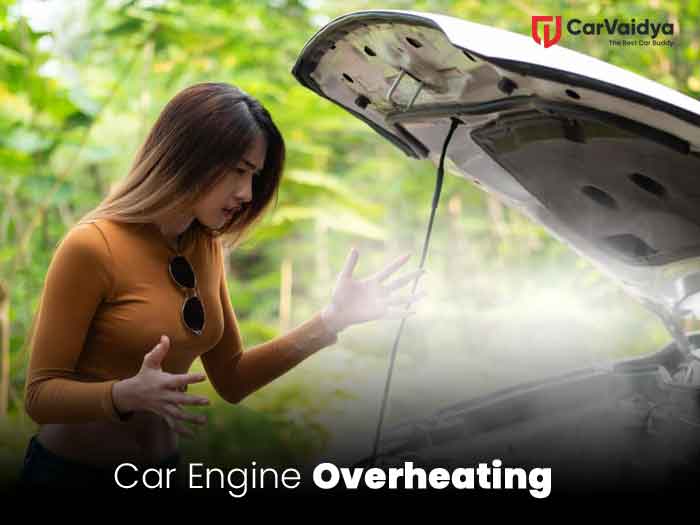Often, due to people's negligence, damage occurs to the car's engine. What are the reasons for engine overheating, and how can one stay safe from it? Let's find out.
Car accidents can be traumatic events, and it's crucial to prioritize safety and take preventive measures to avoid being involved in such incidents. In the unfortunate event of a car engine overheating, it is essential to address the issue promptly to prevent further damage and potential accidents. Here, we will discuss how to handle an overheating car engine and ways to prevent it from happening in the first place.
Understanding the Causes of Engine Overheating
Before delving into preventive measures, it's essential to understand the common causes of engine overheating. The primary reasons include a malfunctioning cooling system, low coolant levels, a faulty thermostat, or a radiator cap that doesn't seal properly. Keeping an eye on these factors can help prevent your engine from overheating and reduce the risk of accidents.
Regular Maintenance
Regular maintenance is key to preventing engine overheating. Ensure that your car undergoes routine inspections and servicing, including checking the coolant levels, radiator, and cooling system components. Over time, coolant can break down and lose its effectiveness, so it's crucial to flush and replace it according to the manufacturer's recommendations.
Monitor Coolant Levels
Low coolant levels are a common cause of engine overheating. Regularly check the coolant levels in the radiator and the coolant reservoir. If the levels are low, top up the coolant with the recommended type and mixture. Additionally, inspect for any coolant leaks and address them promptly.
Check the Radiator and Cooling System
The radiator and cooling system plays a crucial role in maintaining the engine's temperature. Ensure that the radiator fins are clean and free from debris, as this allows for efficient heat dissipation. Check for any signs of leaks in the cooling system and address them immediately. Regularly inspect the radiator hoses for wear and tear, and replace them if necessary.
Proper Use of Air Conditioning
Using the air conditioning system puts an additional load on the engine. In hot weather, consider reducing the use of air conditioning, especially when driving uphill or in heavy traffic. This can help reduce the strain on the engine and lower the risk of overheating.
Monitor Engine Temperature Gauge
Most modern cars are equipped with an engine temperature gauge on the dashboard. Keep an eye on this gauge while driving. If you notice the temperature rising unusually, pull over to a safe location and turn off the engine. Ignoring an overheating engine can lead to severe damage and increase the risk of accidents.
Avoid Overloading
Overloading your car puts extra strain on the engine, especially when driving uphill or in challenging conditions. Be mindful of the recommended weight limits for your vehicle and avoid exceeding them. Overloaded vehicles are more likely to experience engine overheating and pose a higher risk of accidents.
Addressing an Overheating Engine
If you find yourself in a situation where your car engine is overheating, follow these steps
- Pull Over Safely: As soon as you notice the engine temperature rising, find a safe place to pull over. Avoid stopping in the middle of traffic if possible.
- Turn Off the Engine: Once stopped, turn off the engine immediately. Allowing the engine to cool down is essential to prevent further damage.
- Open the Hood Carefully: Wait for a few minutes to allow the engine to cool down before opening the hood. Be cautious, as escaping steam can cause burns.
- Check Coolant Levels: If it's safe to do so, check the coolant levels in the radiator and coolant reservoir. If the levels are low, top up with the appropriate coolant mixture.
- Inspect for Leaks: Look for any signs of coolant leaks under the car. If you notice a leak, do not attempt to drive the vehicle. Seek professional assistance.
- Call for Assistance: If you are unable to identify or address the issue, call for roadside assistance or a tow truck. Attempting to drive with an overheating engine can lead to severe damage.
Preventing engine overheating and ensuring safety on the road involves regular maintenance, monitoring coolant levels, checking the cooling system, and being proactive in addressing issues. In the event of an overheating engine, prompt action is crucial to prevent accidents and further damage. By following these guidelines and staying vigilant, you can minimize the risk of an overheating engine and enjoy safer travels.
Other articles that you can read
Understanding The Benefits Of Maintaining A Car Service History
How Much Does Car Servicing Cost A Comprehensive Guide To Service Costs
How To Find Best Car Repair Service Provider


0 Comments